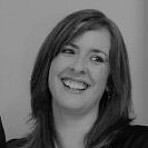What does the Eulenhof mean to you personally and what philosophy do you pursue with the farm?
The Eulenhof is now our home and place of work, which was built by my wife and me. We spent almost five years looking for a suitable farm and now we have finally found the place that suits us. What we particularly like is the diversity that the farm offers, both in terms of the opportunities we have here and the people who come together here. It's exactly what we've always wanted. Here we can realise our plans the way we imagined them.
Are you actually from the region or did you move here?
No, I'm originally from the Heidelberg area and my wife Anna also lived there. I discovered vegetable growing in 2016 and it became clear pretty quickly that we both wanted a farm - not only to run it, but also because we wanted our children to grow up on a farm. For us, it's about being outside, being in contact with animals and being able to live off what you produce yourself. The rural environment is particularly important to us.
What is important to you in terms of the philosophy of the farm?

Our philosophy is wide-ranging. One important point is direct marketing. We want to build a more personal relationship with our customers so that they feel connected to the farm beyond what they purchase. Another important aspect is the promotion of biodiversity. We see added value when the habitat is diverse - this applies to both plants and animals. It enriches our lives if we can shape this space and produce diverse and healthy food at the same time.
Feeding people with our products is a central cornerstone of our philosophy. We produce healthy, regional food that offers added nutritional value compared to conventional products. We put a lot of manual work and passion into our production, which means that work is not just work, but also our purpose in life. We put everything we have into the farm.
How many people work on your farm?
It varies depending on the season. My wife, our children and I are permanent staff, as well as eleven employees. During the busy season, we are joined by around 30 other people who are either doing an internship or simply want to gain agricultural experience. An important part of our work is also the educational component. We show young people where food comes from and how agriculture works - especially sustainable agriculture that is also resilient in the face of climate change.
What animals and plants do you have on the farm?

At the moment we only have chickens as farm animals, but we are planning to include horses for therapeutic purposes in the future. In addition, there are of course countless animals in the insect world, which are very important for us because they are natural pest regulators. The interaction in the soil - from earthworms to micro-organisms - is also of great importance to us. It is an incredible privilege to work with these creatures. We as humans cannot replace their work, but we can benefit from their performance.
What makes me particularly sad is when I see how the soil is often treated badly in conventional agriculture. Soil is a living system and more organisms live in a handful of arable land than there are people in the world. It is important to treat this habitat with the utmost respect.
What is the collaboration with the Sedus canteen like?
The collaboration with the Sedus canteen is great. We deliver everything we produce here on the farm directly to the canteen. What's particularly nice is that we can deliver even if we have excess quantities or if the vegetables don't quite meet commercial standards in terms of appearance. For example, if we have beetroot that is too big, we can still use it in the canteen. The head chef, Mr. Rotzinger, works closely with us and makes sure that bean salad is served three times a week if we have a particularly large amount of beans.
It's also great that Sedus employees have the opportunity to eat such high-quality and affordable food. We deliver the vegetables in the morning and by lunchtime they are already on the plate - it doesn't get any fresher than that. That makes us proud, because we know that our products don't have to travel for days, but are used directly on site.
Do you have any final thoughts you would like to share?

What is important to me is the partnership that we have here at the Eulenhof. We stand together with our employees through all the ups and downs that the farm brings. We also see our role as farm managers more as part of a team that works together as equals and shapes things together. This gives us the opportunity to shape our little piece of the future and at the same time create a place where people can live and work healthily and in harmony with nature.
The Eulenhof stands for agriculture that respects not only people but also nature. Matthias Kuhn and his team create a space that nourishes people in a variety of ways - be it through healthy, handmade products or by passing on knowledge and experience to the next generation. The close collaboration with Sedus and the partnership-based cooperation are just further proof that sustainability is practiced in all areas at the Eulenhof. It is clear that sustainable agriculture is possible if people are prepared to work for the earth with heart and mind.


